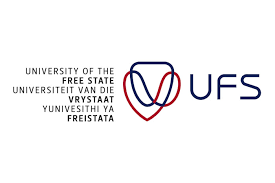University of the Free State: The Global South is no longer weak
“The Global South is no longer weak. Nor will we continue to perpetuate suffering imposed upon us. BRICS has an important role to play in shaping the emerging international order at this critical juncture in human history.” These were the sentiments of Prof Anil Sooklal, Ambassador-at-Large for Asia and BRICS, Department of International Relations and Cooperation, Republic of South Africa, who presented a guest lecture titled: The Role of BRICS in Shaping the Emerging International Order. The lecture, hosted by the University of the Free State (UFS), was followed by a panel discussion facilitated by Prof Francis Petersen, the Rector and Vice-Chancellor of the UFS, with panel members comprising Prof Philippe Burger, Dean of the Faculty of Economic and Management Sciences, UFS; Prof Hussein Solomon, Senior Professor, Political Studies and Governance, UFS; and Ms Mosibudi Motimele, Lecturer, Political Studies and Governance, UFS.
While the outbreak of the Russia-Ukraine war has prompted questions about the future of BRICS, Ambassador Sooklal’s position is clear – there is a future for BRICS. “It is paramount that the Global South is no longer an outlier or merely a witness to an evolving global architecture,” says Ambassador Sooklal. He emphasised that “BRICS is a powerful voice of countries of the South. The BRICS Outreach and BRICS Plus have been embraced by the countries of the South, which have been interacting with BRICS over the past decade, including the AU and other regional organisations of the South”.
BRICS was founded on the core principle of shaping an international order that is fair, just, inclusive, equitable, and representative. It is also focused on strengthening and reforming multilateral systems, with the UN at its centre. “It is important that BRICS remains true to its founding principles and continues, now more than ever, to champion the core interests of the Global South, especially overcoming political, economic, and financial marginalisation. Furthermore, BRICS must continue to address the key developmental challenges of poverty, underdevelopment, and inequality, which have been relegated to the margins by most in the international community. BRICS must become a force multiplier in addressing the key challenges of the developing world,” added Ambassador Sooklal.
The ambassador cautioned South Africa against being drawn into a major power contestation and encouraged that those who seek to perpetuate their hegemonic ambitions on the global stage be challenged.
“BRICS must continue to champion the interests of the South while also working in partnership and co-operation with the global community, including countries of the North that share a common vision of creating a global order that is underpinned by multi-polarity, a rule-based international order, international law, and a reinvigorated, reformed, and strengthened multilateral system with the UN at its centre,” said Ambassador Sooklal.
He added that we must return to the ideals of the UN Charter and build a people-centred world order, as so succinctly stated in the preamble of the charter.
Prof Burger reflected on the nature of BRICS and expressed that the nature of BRICS is not all that clear because of the political developments in BRICS and the US over the past eight years. “In spite of all the business and academic interaction, BRICS today is ideologically weaker than a decade ago, as its members are less united in purpose,” said Prof Burger.
Prof Burger added that politics in four of the five BRICS countries turned nationalist. “For two of the four, this means a new Cold War with the US.
For the other two, however, this means closer ties with the US.”
Where does this leave South Africa, the fifth country? According to Prof Burger, we should not burn our bridges. “We need Chinese and US investments, and we should also learn the nature of the regimes in all four of the other BRICS countries.”
“As a country that really needs to get its economy growing, we will certainly need to tread very carefully,” said Prof Burger.
Prof Solomon was not convinced that BRICS had a role to play in shaping the international order, taking a rather pessimistic view of the BRICS grouping, which he felt made no sense, sharing no common values nor strategic interests.
“China’s economic relationship with Africa, as with many of its other so-called partners, is one of neo-colonialism,” said Prof Solomon. He added that China and Russia have anti-West rhetoric and a narrative of decolonisation in common, while expanding their own national interests across the continent.
“More worrying is the militarisation of China’s presence in Africa – this does not represent a new emancipatory order, but an old order based on national interests and power. Moreover, it constitutes a clear and present danger to South Africa’s own national interests,” added Prof Solomon.

